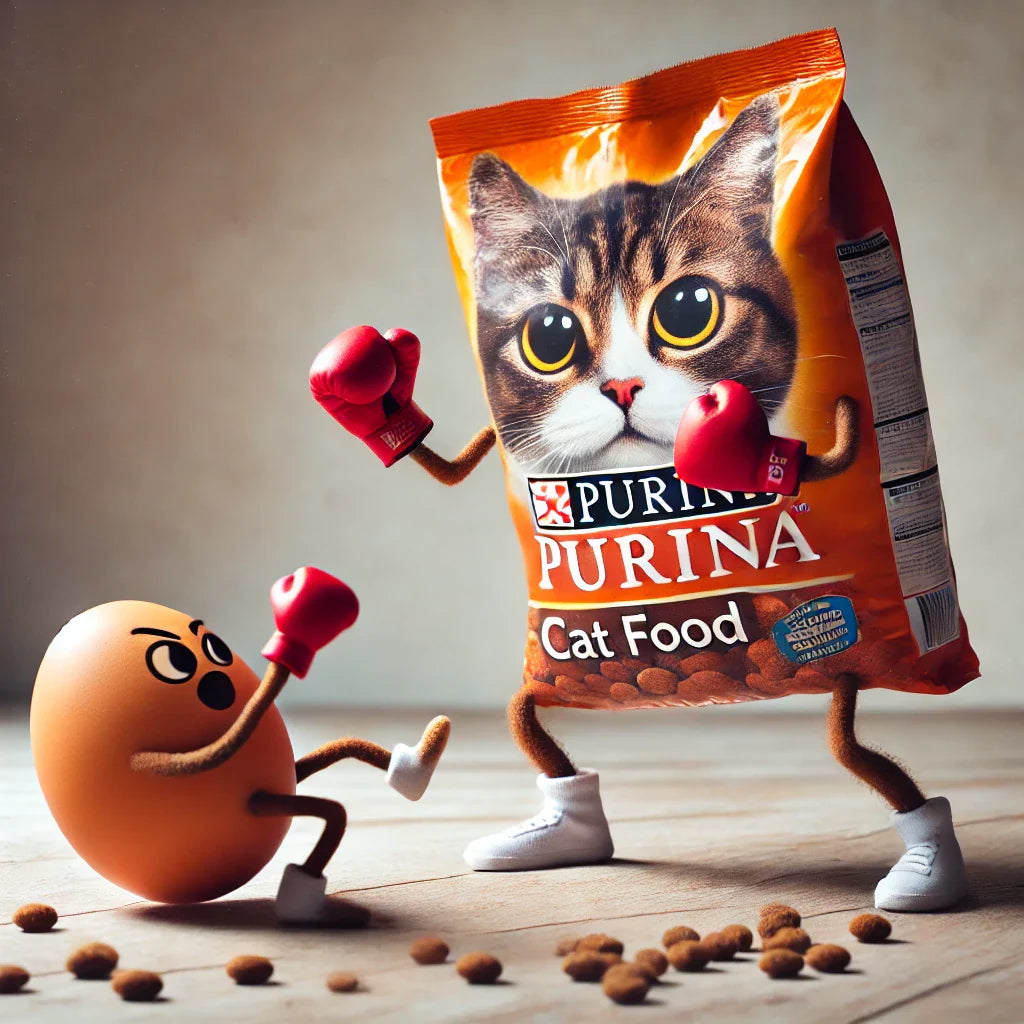
Purina LiveClear vs. Egg Yolks: A Comparative Analysis in Reducing FEL d 1 Allergens in Cats
Share

Managing allergies to cats can be challenging, especially for those who are sensitive to the protein Fel d 1, a common allergen produced in a cat's saliva and sebaceous glands. In recent years, innovative products like Purina LiveClear cat food have emerged, promising to reduce the production of this allergen. On the other hand, some studies suggest that adding egg yolks to a cat's diet can also help decrease the presence of Fel d 1. Let's delve into the efficacy of these two approaches in combating cat allergens.
Purina LiveClear:
Purina LiveClear is a unique cat food formulated with an egg product containing a specific protein derived from eggs. This protein binds to the Fel d 1 allergen in a cat's saliva, neutralizing it and preventing it from being released into the environment. By reducing the amount of allergen that cats shed, LiveClear aims to minimize allergic reactions in susceptible individuals.
Multiple studies have shown promising results regarding the efficacy of LiveClear in reducing Fel d 1 allergens. A study published in the Immunity, Inflammation, and Disease journal found that feeding cats LiveClear resulted in an average reduction of 47% of active Fel d 1 allergen on cats' hair and dander after three weeks.
However, Purina has developed a negative reputation among the pet owner community in the wake of several scandals over the years. One of the most significant controversies involved allegations of harmful ingredients in some of their products, which were linked to serious health issues and even deaths in pets. A class-action lawsuit was filed, claiming that Purina's Beneful brand caused illness and fatalities in dogs, though the company denied these allegations. These incidents have eroded trust among pet owners, who now often seek alternative brands that prioritize transparency and high-quality ingredients for their beloved animals.
Egg Yolks:
On the other hand, research suggests that incorporating egg yolks into a cat's diet may also help mitigate the presence of Fel d 1 allergens. Egg yolks contain a protein called Immunoglobulin Y (IgY), which has been found to bind to and neutralize Fel d 1 allergens in a similar manner to LiveClear.
While there is evidence supporting the use of egg yolks to reduce Fel d 1 levels, the efficacy may vary depending on the individual cat's diet, health status, and allergen production levels. More research is needed to determine the optimal dosage and frequency of egg yolk supplementation for maximum effectiveness. However, when chickens are raised in proximity to cats, they are naturally exposed to the Fel d 1 allergen, which stimulates their immune systems to produce specific IgY antibodies. These antibodies are generated as a defensive response and become concentrated in the egg yolks, where they are stored to provide immunity for the developing embryo. In contrast, chickens that are not exposed to cats do not encounter Fel d 1, and therefore, do not produce these specific IgY antibodies in significant quantities. As a result, the egg yolks of chickens raised near cats contain higher concentrations of IgY antibodies specifically targeting Fel d 1, making them particularly effective for reducing cat allergens when used in products like egg powder.
Eggs can be a safe and nutritious addition to a cat's diet when prepared correctly, offering a rich source of protein, amino acids, and essential nutrients. When eggs are pasteurized and dehydrated into a powder, they become even safer for cats to consume, as this process eliminates harmful bacteria that could otherwise pose a risk. Pasteurization ensures that any pathogens are destroyed while retaining the nutritional value of the eggs. Dehydrated egg powder is also convenient for mixing into cat food, providing a controlled and consistent way to incorporate eggs into their diet. However, it’s essential to introduce any new food gradually and in moderation, monitoring for any adverse reactions, and always consult with a veterinarian to ensure it complements the cat’s overall dietary needs.
Comparative Analysis:
When comparing Purina LiveClear and egg yolks in reducing Fel d 1 allergens, it's essential to consider the following factors:
- Convenience: Incorporating egg yolks into a cat's diet offers a straightforward and flexible solution, as they are easily accessible and can be added directly to meals. In contrast, Purina LiveClear, while effective, requires purchasing specialized cat food, which may not be as readily available or customizable to a cat’s specific dietary needs.
- Effectiveness: While both Purina LiveClear and egg yolks have shown promise in reducing Fel d 1 allergens, egg yolks offer a natural, holistic approach with no reliance on processed ingredients. Egg yolks are a more natural method of potentially reducing allergen levels without the need for specialized commercial products.
- Safety: Powdered egg products offer a safer, more natural alternative for reducing allergens in cats compared to Purina LiveClear. Unlike processed foods, these egg-based products provide a simple, chemical-free solution to managing cat allergies, ensuring your feline's well-being without added artificial ingredients and preservatives.
In conclusion, both Purina LiveClear and egg yolks offer potential solutions for reducing Fel d 1 allergens in cats. While Purina LiveClear has undergone clinical testing and validation, the use of egg yolks may be a more natural alternative for some pet owners. Ultimately, consulting with a veterinarian and monitoring your cat's response to any dietary changes are crucial steps in managing cat allergies effectively.
